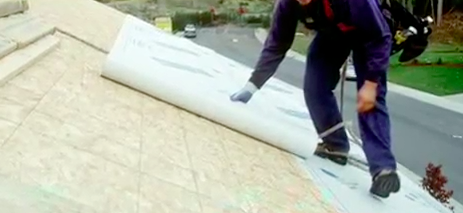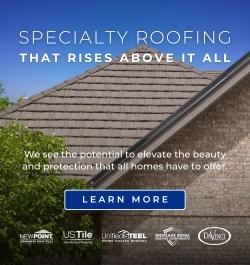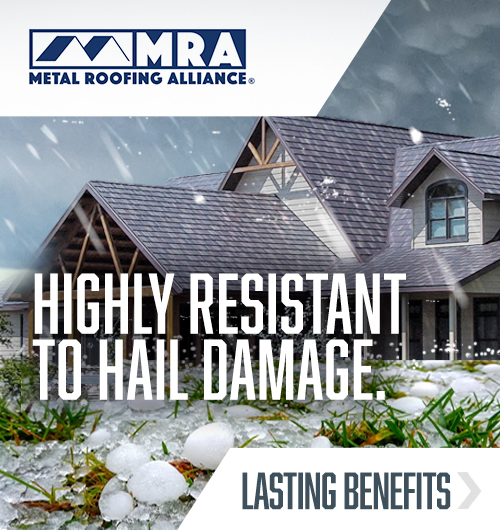DECRA Metal Roofs Offer Protection Against Tornadoes

By DECRA Metal Roofing.
As tornado season starts back up, more owners are choosing metal roofs for their homes and buildings.
Historically, the states in Tornado Alley were limited to Oklahoma, Colorado, Texas and Kansas, but in recent years, these severe storms have spread far beyond those borders,
Most disturbing is the rapid increase of tornadoes touching down between April and May in 2020, causing severe damage and destruction.
While tornado frequency was down in the U.S. year-over-year, NOAA reported 1,053 tornadoes in 2020.
If you are a homeowner living in a tornado-stricken area, it may be time for you to consider a metal roof for added protection.
DECRA metal roofs versus conventional roofing materials in tornado regions
Experience shows that conventional roofing materials like wood shakes, asphalt shingles and clay tiles are all too vulnerable to withstand severe weather conditions. They lack the maximum wind uplift resistance, impact durability, and additional strength that provides t protection against tornadoes. DECRA provides all of these high-performance properties and more.
120 mph wind warranty rating
All DECRA stone-coated steel roofing products are backed by a warranty for winds up to 120 mph and are lab tested at twice that velocity. DECRA products also meet the toughest wind uplift requirements of Florida’s High-Velocity Hurricane Zones.
When conventional roofing products cup, split, warp, delaminate, loosen around the fasteners, or fish mouth over time, the risk for wind uplift increases. When it comes to wind ratings, clay tiles and wood shakes are so vulnerable to wind uplift that they aren't covered by wind warranties at all.
Impact resistance
Impact resistance is right up there with wind resistance when it comes to tornado resilience on the roof. It might help to identify all the conventional roofs surrounding your home or building. In a tornado, those nearby shingles, tiles and shakes with poor wind uplift resistance are hazardous sources for airborne storm debris that your roof will need protection from.
And then there’s wind-driven hail.
Clay tile roofs are particularly prone to impact fracturing so much so that they aren't rated against hail at all. DECRA roofing products have earned the highest UL 2218 Class 4 impact resistance rating. Plus, the stone-coated steel can replicate the look of shingles, tiles, or shakes without sacrificing durability or longevity.
Strength to reinforce the roof system
Shear strength is the capacity of the roof to withstand the parallel forces and stresses of high winds in tornado regions. It’s important to note that even if a tornado isn’t spun off, severe thunderstorms can still produce horizontal winds up to 100 mph, and DECRA can provide the added strength to reinforce the roof system.
DECRA roofing profiles are also among the lightest on the market. An average DECRA roof weighs in at just 3,700-4,500 pounds. The panels are so light that you can often eliminate complete tear-offs of existing materials. Compare that to the traditional heavyweight clay tile at 18,000 to 45,000 pounds, and thick-cut architectural shingles tipping the scale at 7,500-12,000 pounds.
Secure your home with the added protection of a DECRA metal roof
Conventional roofing products can last just a decade or two before needing replacement--even in the best weather conditions. To secure your home from the upcoming storm season, contact one of DECRA’s roofing advisors today.
Have a question? AskARoofer.
Find your local roofing contractor in the RoofersCoffeeShop® Contractor Directory.
Original article source: DECRA










Comments
Leave a Reply
Have an account? Login to leave a comment!
Sign In